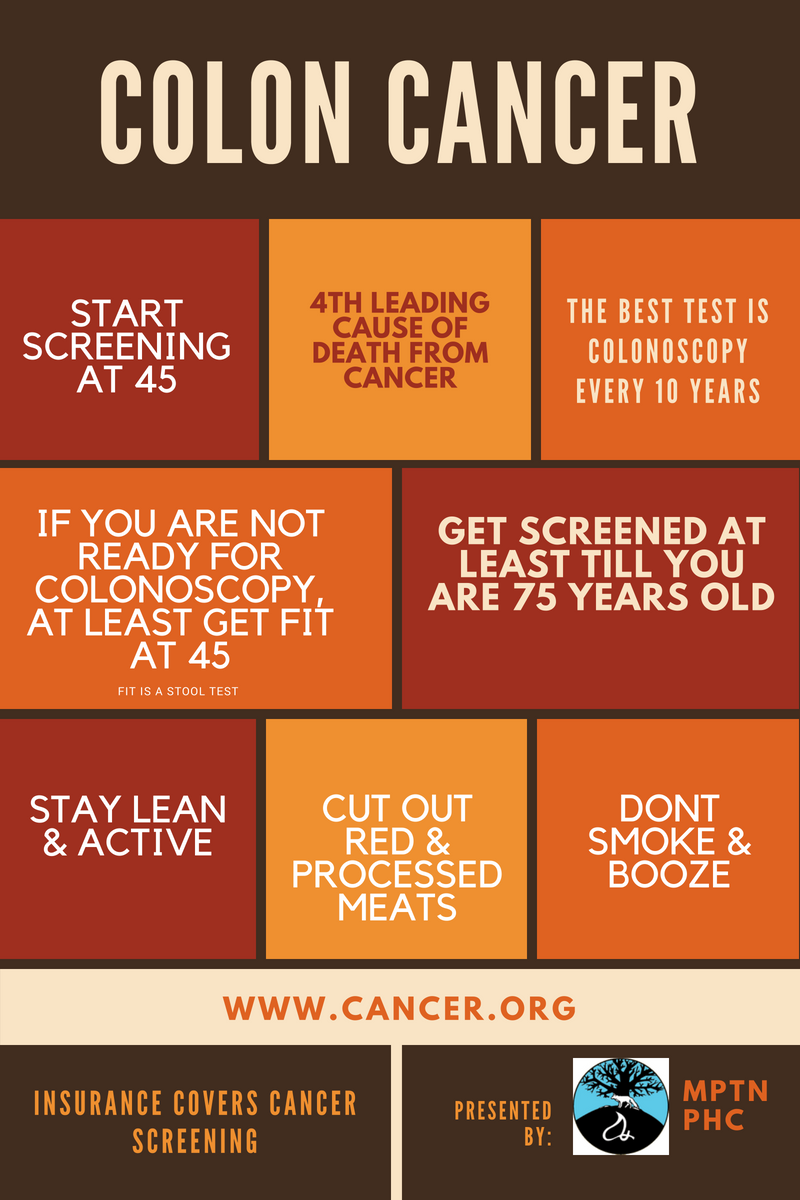If you are 45 years old, get checked for colon cancer. Latest guideline now recommends that people consider getting screening test for colon cancer also known as colorectal cancer (CRC) STARTING AT AGE 45, even if they are feeling great.
American Cancer Society updated this guideline because of science data that showed that many younger people were getting colon cancer, often without any symptoms.
If you have any bad symptoms, all bets are off. Even if you are younger than 45, and have any persistent change in bowel movements, or have any blood in stool (even with obvious hemorrhoids), or unexplained belly pain, or weight loss- talk to your doctor and get checked for colorectal cancer ! That is not considered screening. That is more of a diagnostic check up.
The American Indian/Alaska Native [AI/AN] colorectal cancer incidence was 21% higher and mortality 39% higher than in Whites. The rate of late-stage CRC was 25% higher in Native people. Screening with colonoscopy is also lower in AI/AN people.
Finding and removing early polyps with colonoscopy is called preventive screening.
Five-year survival was more than 90% for CRC diagnosed at an early, localized stage, but decreased precipitously to 70% with localized spread or lymph node involvement, and to 12% with metastatic disease. Early stage colon cancer needs surgery whereas later stage cancer may need radiation therapy with chemotherapy, biologic immunotherapy- all very expensive to the patient and to the employers, payers.
GET SCREENED FOR COLORECTAL CANCER IF YOU ARE 45 YEARS OLD AND HAVE AVERAGE RISK.
TALK TO YOUR DOCTOR TODAY.
People at increased or high risk of colorectal cancer might need to start colorectal cancer screening before age 45, be screened more often, and/or get specific tests. This includes people with:
- A strong family history of colorectal cancer or certain types of polyps
- A personal history of colorectal cancer or certain types of polyps
- A personal history of inflammatory bowel disease (ulcerative colitis or Crohn’s disease)
- A personal history of radiation to the abdomen (belly) or pelvic area to treat a prior cancer.
#FIT@45
#MPTN80%

